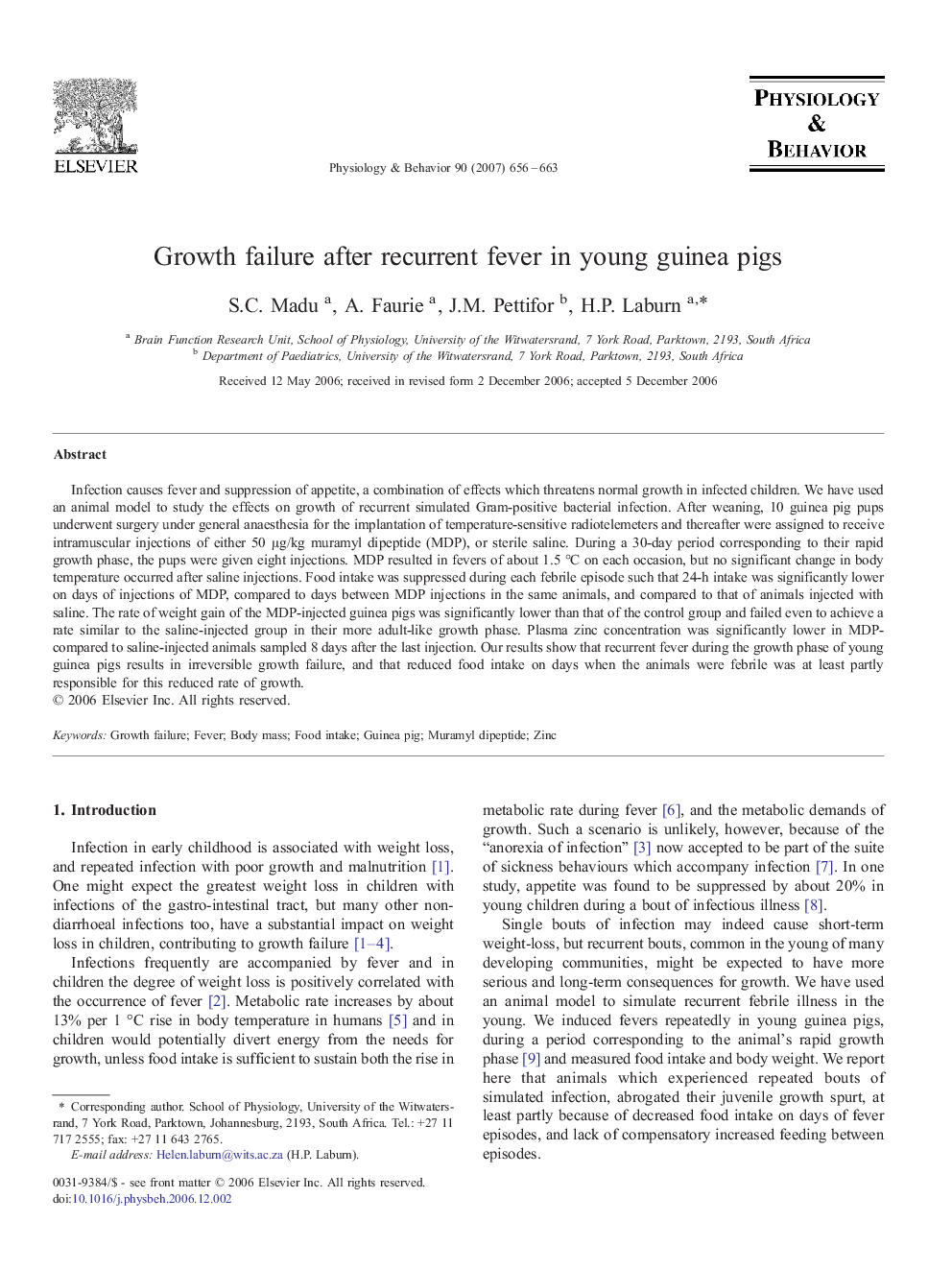| Article ID | Journal | Published Year | Pages | File Type |
|---|---|---|---|---|
| 2846138 | Physiology & Behavior | 2007 | 8 Pages |
Infection causes fever and suppression of appetite, a combination of effects which threatens normal growth in infected children. We have used an animal model to study the effects on growth of recurrent simulated Gram-positive bacterial infection. After weaning, 10 guinea pig pups underwent surgery under general anaesthesia for the implantation of temperature-sensitive radiotelemeters and thereafter were assigned to receive intramuscular injections of either 50 μg/kg muramyl dipeptide (MDP), or sterile saline. During a 30-day period corresponding to their rapid growth phase, the pups were given eight injections. MDP resulted in fevers of about 1.5 °C on each occasion, but no significant change in body temperature occurred after saline injections. Food intake was suppressed during each febrile episode such that 24-h intake was significantly lower on days of injections of MDP, compared to days between MDP injections in the same animals, and compared to that of animals injected with saline. The rate of weight gain of the MDP-injected guinea pigs was significantly lower than that of the control group and failed even to achieve a rate similar to the saline-injected group in their more adult-like growth phase. Plasma zinc concentration was significantly lower in MDP-compared to saline-injected animals sampled 8 days after the last injection. Our results show that recurrent fever during the growth phase of young guinea pigs results in irreversible growth failure, and that reduced food intake on days when the animals were febrile was at least partly responsible for this reduced rate of growth.
